10 Anti-inflammatory Foods to Add to Your Grocery List and Which Ones to Scratch Off
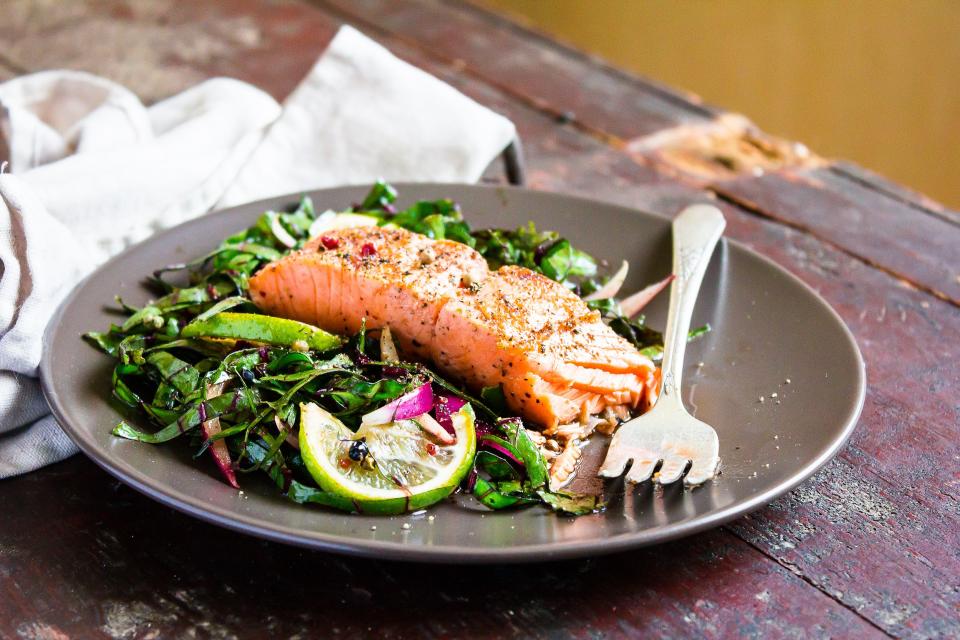
10 Anti-inflammatory Foods to Add to Your Grocery List and Which Ones to Scratch Off
Practicing hard workouts will help you improve endurance and build stronger muscles for better performance overall, but also exercise induced inflammation can lead to unwanted soreness. Though, your body creates its own inflammation fighters when you exercise, you can help it fight with a healthy anti-inflammatory diet—because to train in pain sends exercise down the drain.
As a cyclist eating nutritious foods that contain anti-inflammatory properties can aid your recovery while also protecting you from chronic disease. “While inflammation is a necessary process to fight infection and heal from injury, chronic inflammation can lead to chronic diseases such as heart disease, diabetes, and cancer,” says Kristen Arnold, MS, RD, CSSD, sports dietitian and cycling coach. “By incorporating anti-inflammatory foods into the diet, cyclists can support overall systemic function and prevention of inflammatory-related issues,” she says.
This is why it's a good idea to incorporate some anti-inflammatory foods into your daily food plan. Likewise, there are foods you should eat in moderation because they can create more inflammation in your body.
10 Anti-Inflammatory to Add to your Grocery List
Below is exactly what to increase and decrease on your plate. As you review the list, keep in mind, these foods are not to be eaten in addition to less-healthy fare, but in the place of it. (Looking for more tips on how to make the most out of your riding? Selene's book is full of tips and advice to get fitter, faster, and have more fun in the saddle.)
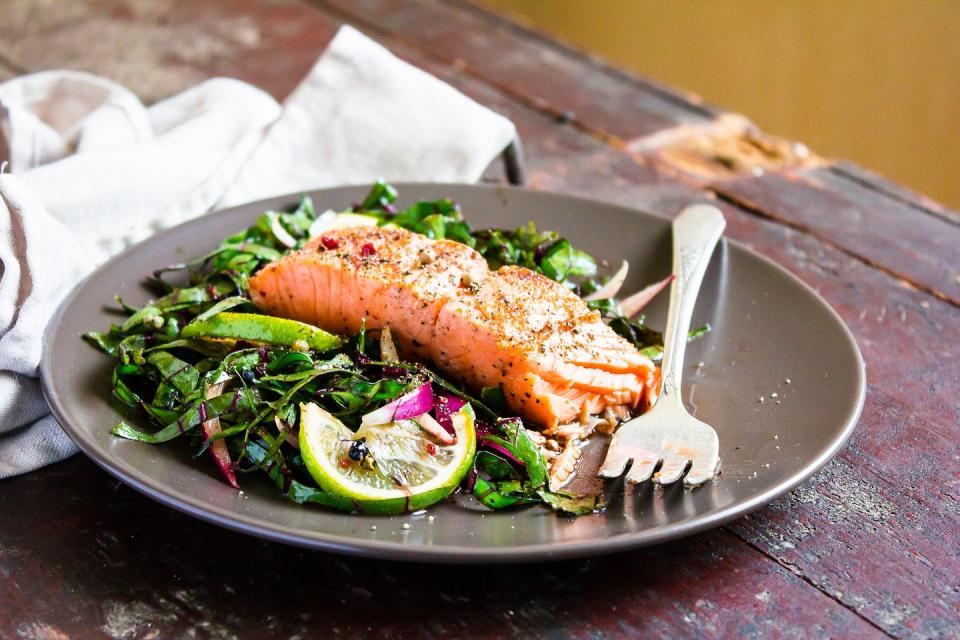
1. Fatty Fish
Salmon, halibut, sardines and other fatty fish are rich in Omega-3 fatty acids which are known to be some of the most potent nutrients for lowering blood inflammatory markers, says Kristen Arnold, MS, RD, CSSD, sports dietitian and cycling coach. Consider swapping out chicken for fish one time a week to get more of these nutrients in your diet.
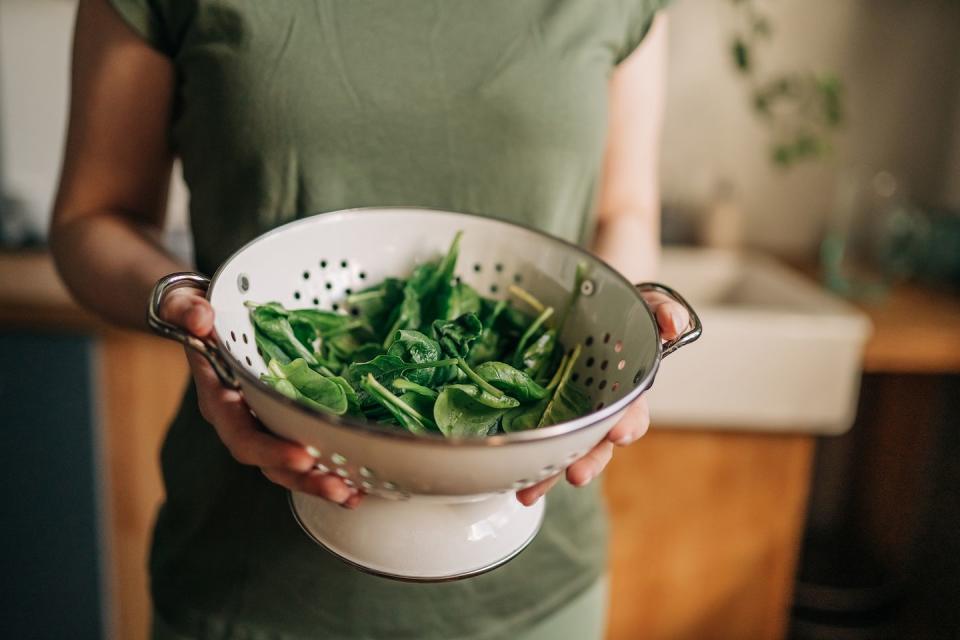
2. Green, Leafy Vegetables
Leafy green vegetables like spinach and kale are rich in antioxidants and polyphenols which aid muscle recovery and reduce exercise induced oxidative stress, according to various research. Add more leafy green vegetables to your diet can be simple, you can mix them into smoothies, have a side of spinach salad or cook them with your pasta.

3. Deep-Orange
Oranges, carrots, sweet potatoes, and squash typically contain vitamin A which is a potent antioxidant that helps fight inflammation in the body, says Arnold. Consider swapping out your pasta for a sweet potato to take advantage of it's anti-inflammatory properties and more.
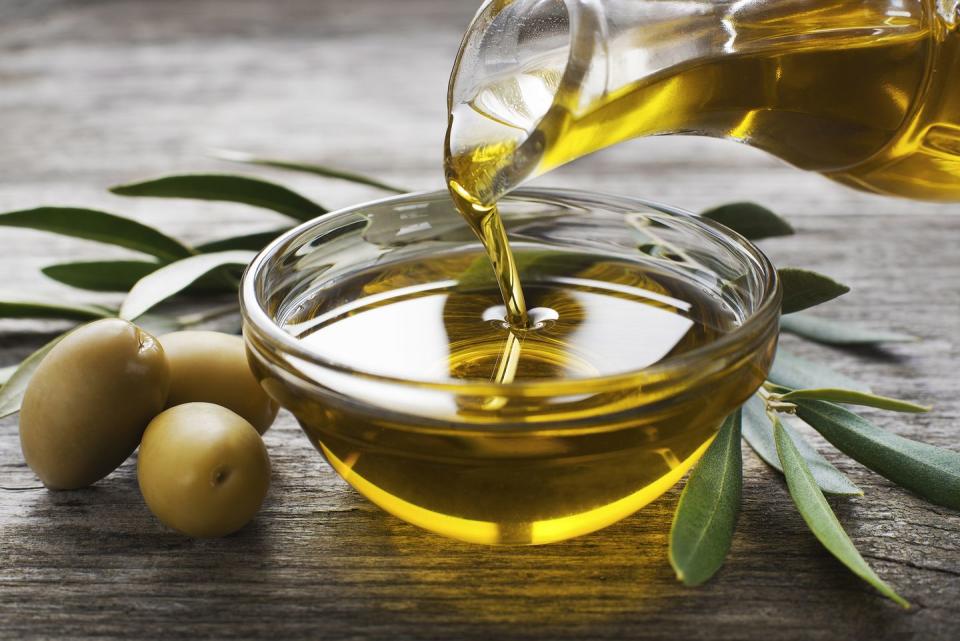
4. Extra-Virgin Olive Oil
If you normally use cook with butter then consider using small amounts of olive oil instead because it's considered a healthy fat that contains traces of vitamin E and K. But don't overdo it because it also contains saturated fats which you can have in moderation.
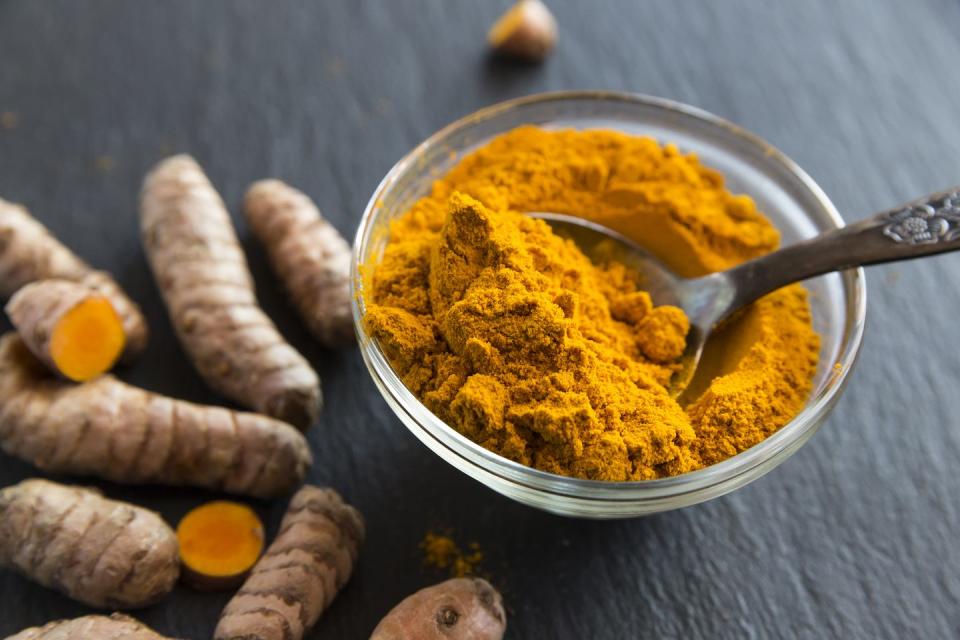
5. Turmeric
Turmeric is a spice that contains curcumin, which is an anti-inflammatory. These anti-inflammatory properties are better absorbed when consumed with black pepper and fat-rich foods, says Arnold.

6. Cayenne and chile pepper
These spices can help fight inflammation because they contain compound called capsaicin, says Arnold.
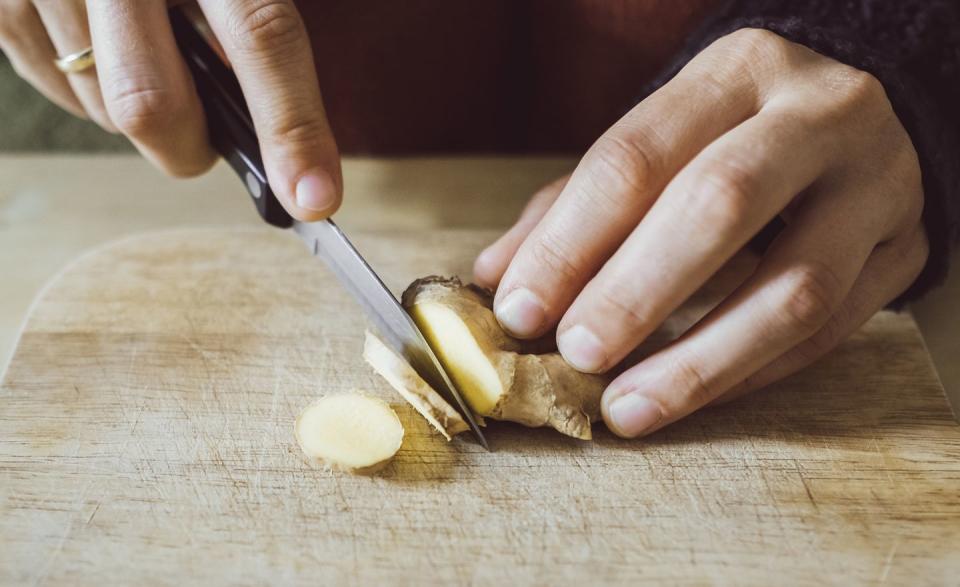
7. Ginger
According to research, ginger has anti-inflammatory properties that can help aid joint pain in athletes. It's is great for adding some zing to vegetables, a stir-fry, or even a smoothie—think pineapple-mango-ginger.
You can keep fresh ginger in the freezer and grate as needed, or buy a tube of chopped ginger. Gourmet Garden makes one that is sold in the produce section. Stir a little into a squash soup and top the soup with a sprinkle of cinnamon. Delicious!
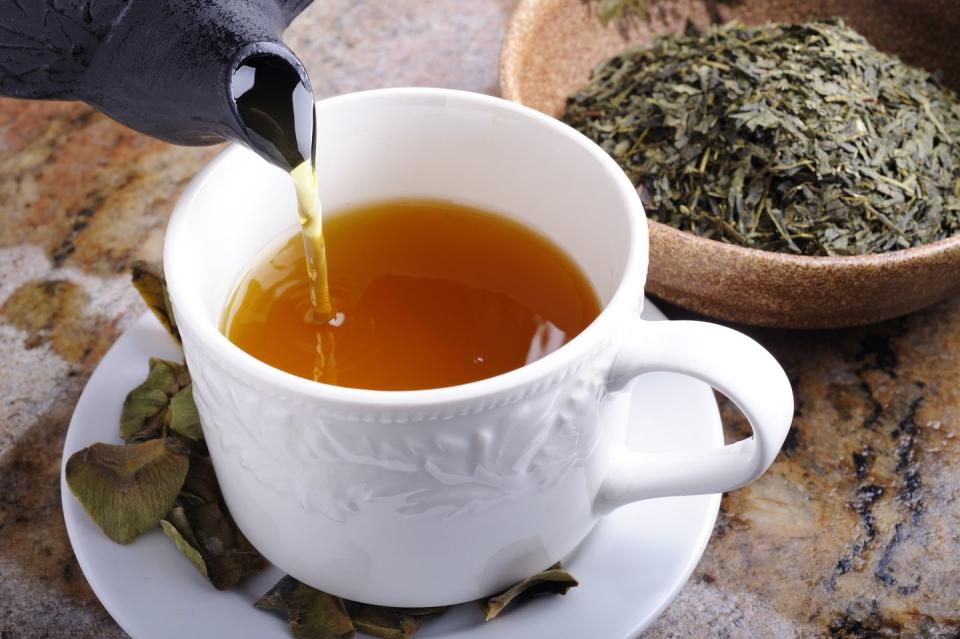
8. Green Tea

9. Tart Cherry Juice
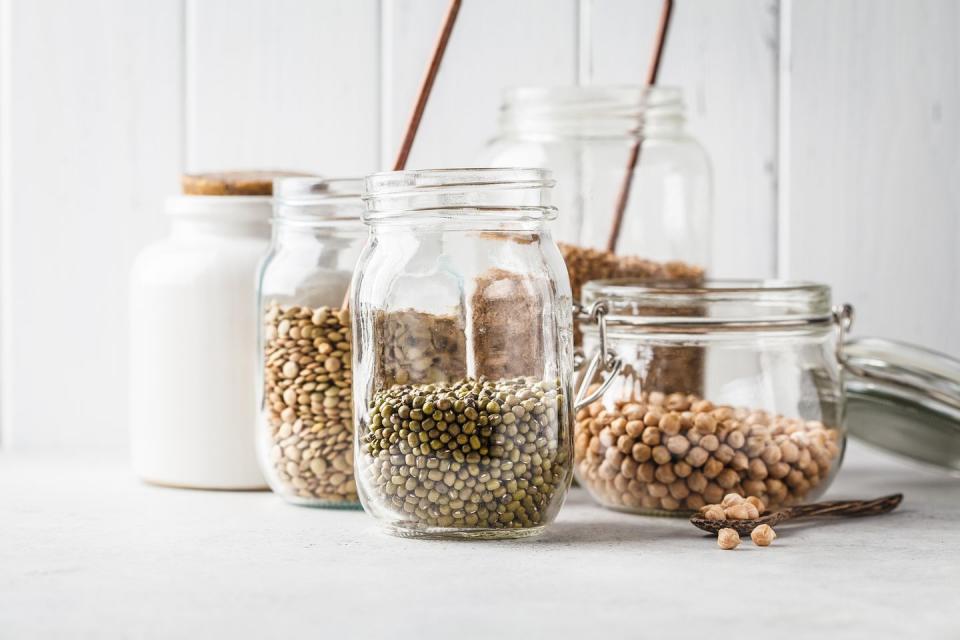
10. Beans and lentils
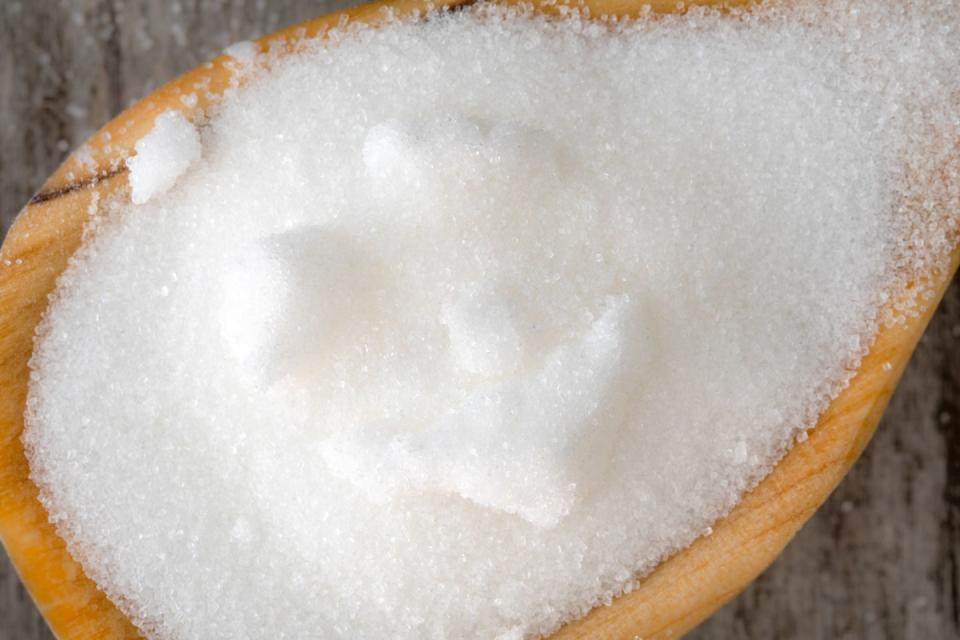
Consume added sugars in moderation
Added sugars displace calories which could be coming from foods with anti-inflammatory properties. In short, when you get easily full on foods with added sugars it leaves less room for other foods with more beneficial nutrients, says Arnold.

Consume Saturated fats in moderation
These fats can be found in poultry skin, butter, whole milk, full-fat cheese, regular ground beef, fatty meats, bacon, or sausage.
These inflammation-fighters will not only help you recover better, but will also fend off other health ailments.